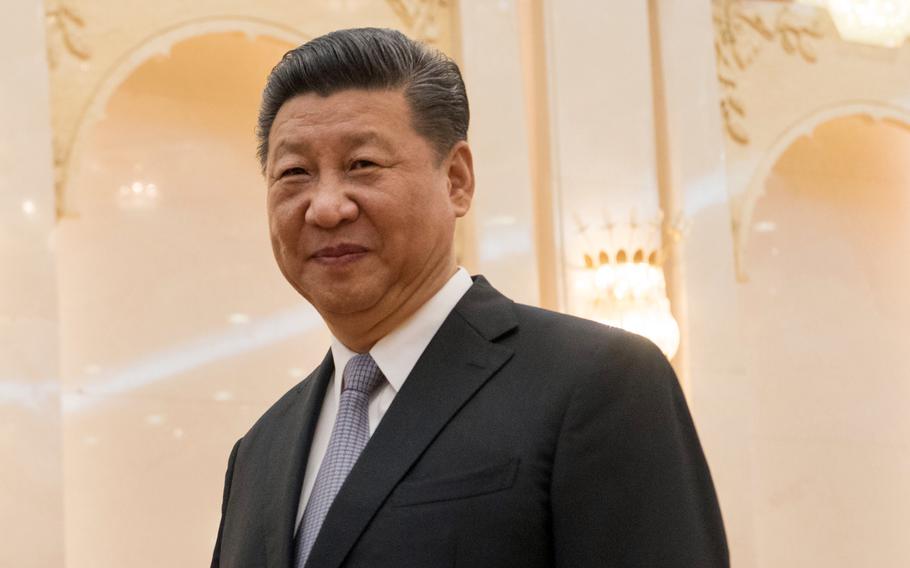
Secretary of State Antony Blinken concluded a two-day visit to Beijing on Monday, June 19, 2023. He met with top Chinese officials, including President Xi Jinping and Foreign Minister Qin Gang. (Alexander Kubitza/U.S. Navy)
China’s refusal this week to restore military-to-military contacts with the United States reflects unwillingness to legitimize U.S. activity in the Indo-Pacific region, two experts in international relations told Stars and Stripes.
Chinese authorities declined a request by Secretary of State Antony Blinken to reopen military contacts to cool escalating tensions in the South China Sea, where a Chinese destroyer and a fighter abruptly intercepted their U.S. counterparts in the past month.
Blinken on Monday concluded a two-day visit to Beijing where he met with President Xi Jinping and Foreign Minister Qin Gang.
While his discussions were “candid and constructive,” they failed to result in renewed contact between the two countries’ militaries, Blinken told reporters Monday.
“I think it’s absolutely vital that we have these kinds of communications, military to military,” he said, according to a State Department transcript of his remarks. “That imperative, I think, was only underscored by recent incidents that we saw in the air and on the seas.”
China suspended regular contact with the U.S. military in August after U.S. House Speaker Nancy Pelosi visited Taiwan – a move Beijing criticized as condoning Taiwan independence. The U.S. reported that China previously declined or failed to respond to more than a dozen Defense Department requests for top-level dialogues since 2021.

Chinese President Xi Jinping poses at Diaoyutai State Guest House in Beijing, June 27, 2018. (Amber Smith/U.S. Army)
Beijing’s decision to avoid reestablishing those contacts also avoids its validation of U.S. military activity in the region, according to James Brown, a professor of international affairs at Temple University’s Japan campus.
“If China agrees to a communication channel to discuss U.S. military transits through the South China Sea, that may be interpreted as China’s acceptance of these transits,” Brown told Stars and Stripes email Wednesday. “Beijing wants to avoid this appearance.”
China may also see the issue, which the Biden Administration has indicated is a priority, as a means of diplomatic leverage, according to Grant Newsham, a senior research fellow at the Japan Forum for Strategic Studies. Beijing may hope to exploit the United States’ eagerness to establish communications in exchange for some concessions.
“The concession might not even be on the military front,” the retired Marine colonel told Stars and Stripes by email Tuesday. “It might be relaxing economic sanctions on [China], for example.”
Channels already exist for militaries to communicate with each other, Newsham said, and China routinely warns ships and aircraft from the U.S. and other countries to stay out of its claimed territory.
“Having some other 'communications link' isn't going to change anybody's mind. And when the [Chinese military] tries to ram or obstruct U.S. ships and aircraft, they know exactly what they are doing,” Newsham said. “Being able to call them up on a 'designated' line to tell them they shouldn't do what they are doing seems pointless.”
Brown said an open line to Chinas military is critical in a climate of tense relations between the two countries.
“Added to this, the U.S. military is committed to operating wherever international law permits, including the South China Sea, whereas China is opposed to this,” he said. “In this context, military incidents are inevitable. The quality of communication infrastructure will determine whether these incidents can be defused or whether they will escalate into more dangerous crises.”